A Radiology Resident’s Perspective: An interview with a radiology resident who has asked to remain completely anonymous for reasons you may soon understand.
Part of an interview series entitled, “Specialty Spotlights“, which asks medical students’ most burning questions to physicians of every specialty. See what doctors from every specialty had to say about why they chose their specialty and how to match in their residency.
- What attracted you to Radiology?
The money. Choosing a specialty for its salary is considered an anathema in the medical community. Because the discussion of salary is taboo, many medical students have taken to talking about a specialty’s “lifestyle.” In reality, lifestyle and salary/work ratio are near synonymous. With the notable exceptions of radiation oncology and dermatology, radiology is unquestionably at the top of the heap. Factoring in vacation, hours, and salary the average private practice (PP) radiologist made nearly twice as much per hour as a general surgeon. If you are going to sacrifice your youth to medical education then you should be lucratively rewarded.
 As I learned more about radiology, I realized that the specialty has all sorts of unique advantages. Without a patient base, a radiologist is free to move about the country at will. They can work from home or from anywhere in the world with teleradiology. This mobility, free of the fetter of patient care, continues to drive radiologist’s salaries higher. Radiologists tend to practice longer than any other specialty (except pathology) presumably due to the relaxed work environment. However many radiologists retire early, which is silly because radiology differs little from retirement.
As I learned more about radiology, I realized that the specialty has all sorts of unique advantages. Without a patient base, a radiologist is free to move about the country at will. They can work from home or from anywhere in the world with teleradiology. This mobility, free of the fetter of patient care, continues to drive radiologist’s salaries higher. Radiologists tend to practice longer than any other specialty (except pathology) presumably due to the relaxed work environment. However many radiologists retire early, which is silly because radiology differs little from retirement.
When I began my clinical rotations, I made a very important and life altering discovery. Clinical medicine sucks. I hated the whole experience. I agonized at having to pick between such awful choices. People kept telling me, “Just do what you love!” I have different advice, “Don’t do what you hate!” Radiology is unique in that we have an integral role in patient care without having to be dragged into any of patient care’s unpleasantries. I am no longer screamed at by patients at 2 am because they think nexium is causing back pain. I no longer have to hold a screaming child for a shot or calm down a sundowning gomer. If you have the opportunity to save lives from a distance, I highly recommend it.
While the lifestyle is enviable, radiology is anything but easy. Radiology is an intellectually rigorous specialty that encompasses the entire breadth of medicine. The training requires extensive study of anatomy, pathology, physics, and treatment. In emergencies, films must be read quickly and accurately. Entire medical treatment plans are sometimes based on a radiologist’s dictation. Medical imaging continues to be at the forefront of modern medicine. Technology advances rapidly and a radiologist should expect to spend most of his or her career keeping up with current technology.
- Describe a Radiologist’s typical work day?
The typical radiologist comes to work and reads films in the dark for the majority of the day. The work day in punctuated by phone calls, administrative responsibilities, and procedures (thoracenteses, liver biopsies, chest tubes, barium swallows, etc.). Contrary to popular belief, these procedures are performed by general radiologists with no special “interventional” training.
- What type of lifestyle can a Radiologist expect?
Based on information on the ACR website, job postings, and anecdotal experience the average radiologist works about 50 hours a week. Generally this is a 7am-4pm M-F with one short call until 9pm and 1-2 weekend days per month. Work schedules are flexible. It is also possible to rearrange the work schedule in many different ways with your partners. Our work schedule isn’t tied to patient management so we can divide it anyway we wish. PP radiologists average 10 weeks of vacation per year, a figure that makes teachers envious.
- What is the average salary of a Radiologist?
Based on the most recent Merrit Hawkins salary scan the average radiologist makes $417,000(1). Andrew has compiled the entire source of physician salary data into one easily searchable article. The Ultimate Guide to Physician Salaries. I highly recommend it.
- What is the job market like for Radiology?
The job market is somewhat tight at the moment, though this is not unique to radiology.
- What are the potential downsides of Radiology that students should be aware of?
My specialty is perfect.
- What else would you tell medical students who are considering Radiology?
Don’t do what you hate. Kill the boards and standardized tests. Keep your options open.
- How competitive is the Radiology match?
Radiology is a very competitive specialty. The average USMLE STEP 1 is 240(2). 26% of successfully graduates are inducted into AOA. Most have some research. Luckily, radiology is a surprising large specialty. With nearly 1000 positions per year, there are plenty of spots to go around. More residency positions are created every year. For this reason, radiology is less competitive than dermatology, radiation oncology, plastic surgery, orthopedics, otolaryngology, or ophthalmology. Clinicians actively try to dissuade medical students from going into radiology.
- What are residencies looking for in a Radiology applicant?
Personality, 3rd year grades, board scores, research. In that order.
- What else would you tell medical students who are considering Radiology?
I wish I knew how fat I would get on pre-interview dinners. Radiology interviews are great. If I could do it again, I would.
- What should students look for in a Radiology residency?
- A balance of case volume and teaching: There are “work” residencies and “study” residencies. “Work” residencies focus on learning to read films and dictate efficiently but can lack structured educational activities such as lectures and research. If case volume is too high, you may be trained to be a transcriptionist instead of a radiologist. On the other hand, at certain programs the residents are underworked and spend a large portion of their day studying and researching. While these residencies sound cushy, it is embarrassing for residents to have to fight each other for cases. One should look for a program where the residents do not have to compete with fellows for films/cases.
- “View-box” teaching: The ideal situation is that the resident reads a film independently, checks out with the attending who teaches and answers questions, and then the resident dictates a report. The suboptimal way is that the resident types a brief preliminary report which is later finalized by an attending with no face-to-face contact. (Though the latter situation is appropriate for senior residents reading basic films.)
- Modern Equipment: Radiology is a rapidly changing field. Don’t be behind in the technology before you even start!
- Residents and Faculty: Go someplace where you will fit in and feel comfortable.
- Facilities: Palace or dump?
- Food: You are what you eat.
- Fitness: For something to do with all your free time.
- What other advice do you have for students applying to Radiology?
I met an old southern radiologist when I was a medical student. He looked like a colonel in the Civil War. Grizzled and wizened, he looked me straight in the eye and asked, “Son, what is it ya wanna do with yo life?”
“Radiology, sir.”
He said, ”Well that shows remawkable judgment and good sense.”
You are choosing a career for LIFE. Choose a specialty that you will enjoy when you’re 64. Most people have the same specialty longer than they are married. Treat your specialty choice with the same careful consideration as you would with any major life decision. Or don’t, and go into ER. What do I care? Peace.
MYTH OR FACT:
- Radiology is going to be Outsourced! – A favorite MYTH of surgeons, foreign doctors, and the ignorant. First and foremost, as long as radiology is considered to be medical practice, then it will require aUS medical license. Credentialing is increasingly difficult and the notion that any hospital would credential an unknown inRanipet,India is absurd. Second, general radiologists now perform far too many procedures to not have a physical presence at a hospital. And third, there is no way to sue that physician in Ranipet.
- Radiology doesn’t have enough patient contact – MYTH. Radiology has as much patient contact as you want. At any time, I can put down my mocha latte and go talk to my patients. I don’t, but I could. Radiology requires a one year internship that is designed to shatter any delusions medical students still have about patient contact.
- Radiology has turf wars with other specialties. – This is FACT, but it is not unique to radiology. The most notable radiology turf war is with cardiologists over cardiac imaging. Clinicians reading their own films is grossly inappropriate. Clinicians are 4 times more likely to order a film if they are reading it themselves3. Beyond the unscrupulous avarice, the radiation from unnecessary studies causes direct harm to patients.
- Radiologists sit in the dark all day – FACT, but there is nothing stopping me from turning the lights on while I read films.
Editor's Note: For more help choosing a specialty in medicine, I highly recommend one these great books about choosing a specialty. If you have already decided on radiology, I recommend the First Aid for the Match to help you get ready for interviews.





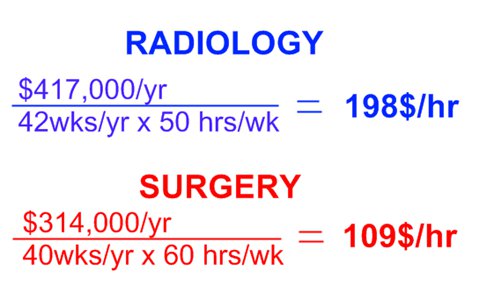
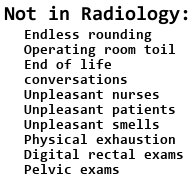
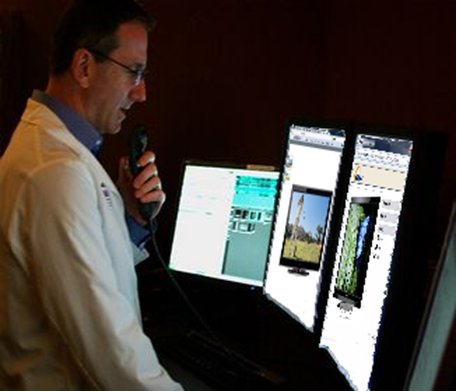
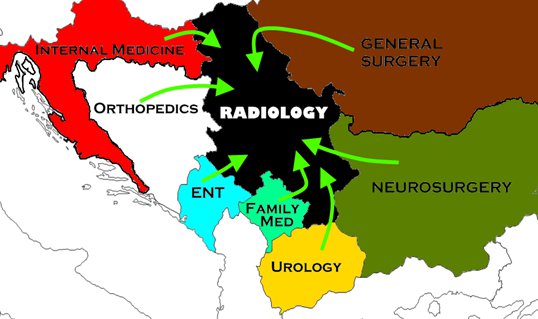
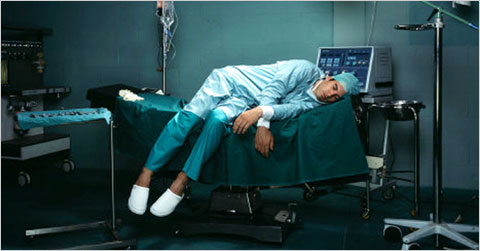
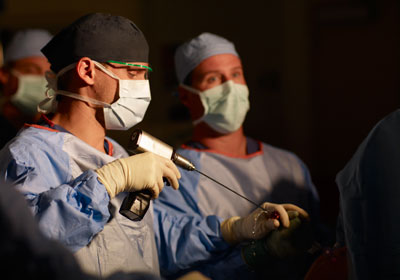

 My name is Andrew and I am a first year resident training to be an ophthalmologist. I created ShortWhiteCoats to provide medical students, residents, and the public with all the information I spent so many hours looking for during medical school.
My name is Andrew and I am a first year resident training to be an ophthalmologist. I created ShortWhiteCoats to provide medical students, residents, and the public with all the information I spent so many hours looking for during medical school.









33 comments
Skip to comment form ↓
hopeful radiologist
August 2, 2012 at 11:20 pm (UTC -4) Link to this comment
I really needed to read this article. It served as great encouragement as I am presently studying for step 2Ck and preparing my application for Radiology residency. I would define myself an average but consistent medical student as well.
I am worried however that I had to retake step 1 more than once, due to very strong reasons ( family loss), and my passing score was only 209.
My third year grades are mostly B-s and a couple A-s. I have had research experience in radiology and a SNM meeting presentation this June, as well as other published work. I am under a lot of stress as i know the filter of failed step 1 scores will exclude me from even being look at as an applicant.
Any thoughts that might help?
Thank you very much!
Best,
L
Andrew
August 6, 2012 at 9:30 pm (UTC -4) Link to this comment
Dear L,
I have never applied to radiology, so I do not know all the specifics. What I do know is that radiology residencies, in particular, pay very close attention to the numbers and Step 1 is quite important in their calculations. Your reasoning for a less than ideal score is very understandable. I suggest you study your tail off for Step 2 to prove to programs that you can score very well. If you can do that, any reasonable program should overlook a lower Step 1 scored incurred because of extenuating circumstances.
Andrew
christina
November 3, 2014 at 7:29 pm (UTC -4) Link to this comment
I am an xray tech and agree, Radiologist is a fantastic choice, but as far as patient contact, please google HYSTEROSALPINGOGRAM so that you are prepared for some up close and personal patient contact. Our Radiologists do one a day, minimum.
Andrew
December 29, 2014 at 4:49 pm (UTC -4) Link to this comment
Thanks Christina…..I had no idea.
radboy
February 13, 2015 at 6:05 pm (UTC -4) Link to this comment
HI
Dear bro !
i am preparing for stepck first and will then give step 1
what is your current advise for target for IMG ?
What should i do to secure a stop in rad residence ?
radiology is my dream but i keeping all my options open ( so its ok if i get into FM or IM too please can you suggest target score for it )
secondly i have CP HEMPLEGIC (legs) SPASTIC TYPE (MILD ) so i how should i go about it ? when apply for clinical rotations ,furthermore i have no UCE at all
please rely asap
thank you
Andrew
April 21, 2015 at 10:24 pm (UTC -4) Link to this comment
You have difficult questions. The IMGs who I know how have been successful have done very well on rotations at the locations where they match. That being said, radiology is one of the more difficult specialties to match into for domestic graduates, so you are fighting an uphill battle to be sure. I can not advise you on your medical conditions and how they may play into your career, you should speak to your own physician about these things. Thanks, Andrew
Doyol
May 30, 2015 at 10:45 am (UTC -4) Link to this comment
Radiology is effing boring! Just studying radiological anatomy made me impotent.
Thank god I met a urologist.
Rajvi
May 31, 2015 at 9:46 am (UTC -4) Link to this comment
Sir,
I would like to ask you which would be a better option,dermatology or radiology? What are the subjects you really need to know when you are doing radiology ?
Andrew
May 31, 2015 at 8:17 pm (UTC -4) Link to this comment
These are VERY different fields. The only reason they might be lumped together is because they are both considered “lifestyle” specialties that afford one a bit more free time. If you like patient interaction, skin, cosmesis, surgery than dermatology might be for you. If you prefer little patient contact, are cerbral, are not as surgically inclined, and want to know something about every organ and disease process then maybe radiology is for you. I am not sure what you mean by “subjects” needed for radiology.
MS
June 12, 2015 at 10:13 am (UTC -4) Link to this comment
I agree with Andrew. Radiology and dermatology are very different specialties. I did rotations in both.
I thought I'd like derm but to be honest there's a significant "yuck" factor involved in derm. You see people with diseased skin after all, and it's not usually a pretty sight. I saw a lot of eczema and psoriasis, and lots of skin cancers, mostly BCCs and SCCs, but including a couple of melanomas, for example, and saw people get light therapy, helped on Mohs surgeries, etc. Mohs was cool but also gross. By the way the dermatologists who want to make a lot of money aren't working 40hrs per week and that's it. They're working very hard.
Radiology was interesting. I'm a former computer programmer who went to med school. I'm also a bit introverted. So I thought I'd like being able to sit in a single place looking at cool images, playing with all the cool technology and imaging modalities and so forth. But the truth is I got bored. People say it's like watching someone else play a video game, so maybe things are different if you're the radiologist, but I still couldn't stomach a lot of the sitting, trying to find every little thing wrong in an image which the joke was it's like trying to find Waldo a hundred times per day and if you miss him you could affect patient care and be in for a law suit if not worse, dictating constantly, then having interruptions by visitors from other departments like interns or residents or even attendings coming to radiology, fielding phone calls left and right, I heard it can be a nightmare especially with the constant stream of imaging from ED at night, etc. The residents are shielded from a lot of this but the attendings wouldn't be. At the attending level, if you're reading CTs, the average is going through about 100-125 images per day! Other modalities (e.g. MRI) are a lot less because they're harder. Still that's an enormous amount to have to go through. Not to mention radiology even as an attending still has to take call, work weekends, etc. Overall the hours are more set, and the money still decent, though the job market a bit tight right now and you may not get to live in your ideal place. But radiology is a very mentally draining specialty after each day (like playing puzzles all day long for 10 hrs per day constantly), and the pressure is to read more and more. The hours in residency are decent, only maybe 40-50 hrs per week, at least in the earlier years of residency from what I've seen, but you're expected to study and read tons of stuff outside these hours. You have to learn tons of anatomy and tons of pathology, and some basic physics and how the various radiological imaging technology work. I've been told the reading and studying is at least as much if not more than what you read and study in med school, unlike internal medicine for example where med school actually has built a lot of the foundation for what you learn in internal medicine. It's a good specialty for the right person, but it wasn't for me, personally.
Andrew
June 29, 2015 at 4:11 pm (UTC -4) Link to this comment
Thanks medstick! Great insight.
Aghast
July 8, 2015 at 4:01 pm (UTC -4) Link to this comment
Please tell me where you are practicing so that I can make sure I never have to encounter you.
Andrew
July 9, 2015 at 11:43 am (UTC -4) Link to this comment
Hi Aghast,
This article was actually an interview with a guest physician, a radiologist from the Midwest. I actually know him well and though he is quite cynical about medicine in general, he is a great physician!
Juan
August 7, 2015 at 1:38 pm (UTC -4) Link to this comment
I am an international student from the dominican republic styding with a F1 visa in puerto rico. i don't want to study something that takes a lot of my life, but i don't want to study something'' easy'' . I think i like radiology because it doesn't involve to be very active everyday. People are saying it's very boring, but seeing the amount of hours and the type of work, i think this is one of the best specialities, what i want to know is how hard is to study radiology? just asking hehe
Andrew
December 9, 2015 at 5:02 pm (UTC -4) Link to this comment
Well, I am not a great person to ask because I don’t study radiology. However, I am sure it is no simple task. Find a nice radiologist to whom you might ask the same question.
Osama
November 26, 2015 at 12:21 pm (UTC -4) Link to this comment
A great article full of enthusiasm and pride about radio
Iam IMG ..iam currently preparing step 2 ck and my step 1 scoree is 225 .. Do i have a chance to catch radio residency with that step 1 score ?
Andrew
December 9, 2015 at 4:47 pm (UTC -4) Link to this comment
Hi there. A 225 on Step 1 would be below average for students accepted into radiology. However, the data for IMGs is quite variable and many other factors go into your application. It would be best to discuss your whole portfolio with someone involved with a radiology residency.
Rina
December 10, 2015 at 9:52 pm (UTC -4) Link to this comment
Hello,
Thank you for all your feedback. I also am particularly intersted in pursuing Radiology, although my step 1 score is sub 200 due to a family crisis – pass on first attempt. CK is 230's..do you think I stand a chance?
Thanks
Andrew
April 16, 2017 at 2:02 am (UTC -4) Link to this comment
Matching in any specialty is not all about the Step Scores. That being said with a Step 1 below 200, this is a very uphill battle to match in radiology.
Albert
February 28, 2016 at 8:26 pm (UTC -4) Link to this comment
Great Article, truly inspiring.
I am an IMG, currently preparing for both Step 2´s, my step 1 score is 242, i did some research assist work during college holidays. YOG is January 2016. Do you believe I stand a chance to get into Rad residency, even for a lesser competitive program???? Thanks a Lot!!!
patel
March 2, 2016 at 5:17 pm (UTC -4) Link to this comment
I am an IMG. I do not have home country residency in radiology.
I am preparing for step 1 now. What score should I target to be safe? (p.s. in all steps)
I do not have publications in radiology. How should I get started for that?
What is preliminaryposition? and What is a Transitional year for Radiology? You said we rotate at every department in transitional year; then how it is helpful and be considered as a 1st year of radiology?
How 4 years of radiology are divided for an IMG like me?
Sorry to ask too many questions. Hope you'll clear my doubts.
TIA 🙂
Andrew
March 27, 2016 at 10:57 am (UTC -4) Link to this comment
Hi,
These are tough questions. As an IMG with prior radiology training, board scores may not be as important (you can see that the average STEP scores for IMGs in all specialties are lower than for graduating US trained medical students). That being said, matching into radiology as an IMG is certainly an uphill battle. The better your score, the better your chance of matching. If you could hit the test out of the park and get a huge score, it would be ideal. Something in the 240+ range would turn heads for an IMG. You should also get research in radiology, this is huge. How to get started is a very long discussion, talk to your local department about projects they may have.
In the US, our radiology residents do one year of general medicine. Sometimes this is integrated with their radiology residency, sometimes it is not. If it is not integrated, they have to find a SEPERATE one year residency in general medicine. These are called “preliminary medicine”, “preliminary surgery”, or “transitional year” residencies.
Good Luck!
Steve
March 20, 2016 at 12:14 am (UTC -4) Link to this comment
I'm a current osteopathic MS3 student who wants to become a radiologist, but I'm concerned about my chances of matching. I have a step1 in low 220s, comlex 1 of 540s, taking step 2 in july, have 1st author publication from undergrad, and passed all of my shelf exams so far. I've been eyeing the NRMP data from 2014 as it had a specific summary of radiology match data and it appears that someone with my stats has a significant chance of matching if I apply to many programs. Do you know of any updated step 1 averages for radiology in the past few years? In the worst case scenario, I'm willing to scramble into IM or FM as last resort.
Andrew
March 27, 2016 at 10:52 am (UTC -4) Link to this comment
You have done your homework. These test scores make radiology a possible match for you, but there will be many applicants with more impressive board scores. Remember, scores are not everything, they may help you GET the interviews, but I don’t think they have much to do with helping you do well IN your interviews. Find ways to stand out from all the other brilliant students applying for radiology.
Anonymous
March 23, 2016 at 7:16 pm (UTC -4) Link to this comment
Hi Dr. Andrew! Thank you for the very useful blog. I am very interested in radiology. Technology, learning further details abt whole body/organs, and academic/research in the field is just facilitating to me. I also love job options/security. The point is that I am completing my residency in occ-med. One of my rotation was in rad-MSK and that was where I felt in love with rad. Also, I noticed it is really helpful to have a combined rad-occ med training since majority of my cases are MSK cases and we have lots of interactions with radiologists(for both diagnostic and therapeutic causes). Do you think I might stand a chance after all? would my thinking would be a strong ration for rad PDs to be considered? Appreciate any advice you might give me. Thank you!
Meri
March 23, 2016 at 7:17 pm (UTC -4) Link to this comment
Hi Dr. Andrew! Thank you for the very useful blog. I am very interested in radiology. Technology, learning further details abt whole body/organs, and academic/research in the field is just facilitating to me. I also love job options/security. The point is that I am completing my residency in occ-med. One of my rotation was in rad-MSK and that was where I felt in love with rad. Also, I noticed it is really helpful to have a combined rad-occ med training since majority of my cases are MSK cases and we have lots of interactions with radiologists(for both diagnostic and therapeutic causes). Do you think I might stand a chance after all? is my explanation a strong ration for rad PDs to be considered? Appreciate any advice you might give me. Thank you!
Andrew
March 27, 2016 at 10:50 am (UTC -4) Link to this comment
Hi, thanks for the comments. In your short paragraph you have convinced me that you are all in for radiology. Of course, I can’t tell you if you will get in, and we all know that rads is a hard match. What I recommend is writing a very personal essay (personal statement) about why you are a great fit for radiology. Everyone who applies for radiology is 1- smart, 2- in love with technology. You need to find a way to stand out from the crowd. Good Luck!
joeschmoe
March 30, 2016 at 5:47 am (UTC -4) Link to this comment
Hey Andrew, great piece definitely very informative and uplifting. I'm a US allopathic ms3 looking to match at a top interventional or diagnostic radiology program somewhere in the northeast and very preferably in Manhattan. I have strong scores (260 STEP1 honors in all clinical rotations thus far, likely AOA, strong LOR from IR department chair, publication on the way). My question is given this record are my chances of matching a top tier program of choice in a designated geographical region reasonable. I know I have a good resume but I just don't know if being so picky is going to give me a let down on match day. I have family reasons for needing to stay in this particular area so it would be a dream to be able to match in the area. I'm just curious to hear your 2 cents.
Andrew
April 30, 2017 at 1:04 am (UTC -4) Link to this comment
Matching is a crap shoot, things do not always follow logical rules. However, your data appear to be enough to get you many of the interviews you want. However, matching once you have the interviews is a totally different ball game. All the data you listed are good to get you interviews…now you have to shine at the interviews.
averagestudent
July 4, 2016 at 12:17 pm (UTC -4) Link to this comment
The physician mentioned his priorities for a good match: "Personality, 3rd year grades, board scores, research. In that order." I'm in my third year now, and am trying to decide how concerned I should be about my chances. I have personality in spades, got 250 on step 1, and have a couple leadership positions and publications (no first authors) to expect in the next year or so. I did get a B on my surgery rotation, and I'm currently wondering how competitive I'll be if the trend continues and I get average third year grades and do above average on my step scores.
Andrew
April 16, 2017 at 1:58 am (UTC -4) Link to this comment
Good luck sir. Anyone who professes to have personality in spades is most likely correct.
Sabaa Anam
January 11, 2017 at 1:50 pm (UTC -4) Link to this comment
Hello,Dr.Andrew,
I AM SUPER INSPIRED BY YOU.
But unfortunately due to money problems I could only get into college for a degree of Medical Diagnostic Imaging – Radiographers degree and NOT the medical college….
I would like to know if this path is safe? Should i apply for the medical college after I get my MDI – Degree OR take MASTERS degree and specialize in MRI..?
All I want is to be able to Earn money while enjoying the job and support my family in the future. Please help me to choose a succesful path.
Thankyou
Sabaa
Andrew
April 16, 2017 at 1:45 am (UTC -4) Link to this comment
Hi Sabaa,
This is a great and a difficult question. Being a physician is certianly NOT the only job where you can be happy, earn money, and enjoy going to work every day. I often wonder if my life wouldn’t be easier, and more simple, as medical technician of some kind. It appears your hands are tied at the moment, make the most of it. Good luck.